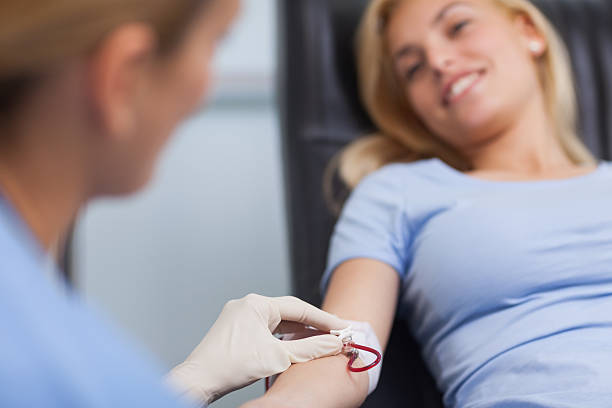Where to Donate Plasma: A Comprehensive Guide
Understanding Plasma Donation
Plasma donation is a vital process that helps save lives. Plasma, the liquid portion of blood, carries essential nutrients, hormones, and proteins throughout the body. It plays a crucial role in maintaining overall health by supporting the immune system and aiding in blood clotting. Plasma is used in various medical treatments, including therapies for immune deficiencies, bleeding disorders, and burn victims. This guide will explore the various aspects of plasma donation, including where and how to donate, the benefits, and considerations to keep in mind.
Why Donate Plasma?
Donating plasma is an act of generosity that can significantly impact patients' lives. Plasma-derived therapies are essential for treating individuals with chronic illnesses, traumatic injuries, and rare diseases. Unlike whole blood donations, plasma can be donated more frequently, making it a continuous and valuable resource for medical use. The process not only aids patients but also contributes to scientific research and development of new treatments.
Types of Plasma Donations
There are two primary types of plasma donations: source plasma donation and recovered plasma donation. Source plasma is collected directly from donors through a process called plasmapheresis, which separates plasma from blood cells and returns the blood cells to the donor's body. Recovered plasma is obtained from whole blood donations, where plasma is separated after the whole blood is collected.
Finding a Plasma Donation Center
Locating a plasma donation center is the first step in the donation process. Numerous organizations operate plasma donation centers across the country, ensuring accessibility for potential donors. Some of the leading plasma donation organizations include CSL Plasma, BioLife Plasma Services, Grifols Plasma, and Octapharma Plasma. These centers are equipped with the necessary facilities and trained staff to ensure a safe and comfortable donation experience.
What to Expect During Plasma Donation
The plasma donation process typically takes about 90 minutes. Upon arrival at the donation center, donors undergo a thorough health screening, which includes checking vital signs, reviewing medical history, and testing for infectious diseases. This ensures that the donation is safe for both the donor and the recipient.
Once cleared for donation, the donor is seated in a comfortable chair, and a needle is inserted into their vein. Blood is drawn and passed through a machine that separates the plasma from other blood components. The plasma is collected into a sterile container, and the remaining blood components are returned to the donor. The process is generally painless, though some donors may experience mild discomfort or bruising at the needle site.
Eligibility Criteria for Plasma Donation
To donate plasma, individuals must meet specific eligibility criteria to ensure their safety and the safety of recipients. Donors typically need to be between 18 and 65 years old, weigh at least 110 pounds, and be in good overall health. They must also pass the initial health screening and have no history of certain medical conditions or high-risk behaviors. Regular donors undergo periodic health checks to monitor their suitability for continued donations.
Benefits of Donating Plasma
Donating plasma offers several benefits beyond the satisfaction of helping others. Donors often receive compensation for their time and effort, which can be a motivating factor for many. Additionally, regular health screenings provide donors with valuable insights into their overall health. Plasma donation centers also create a sense of community, where donors can connect with others who share their commitment to saving lives.
Plasma Donation Frequency
One of the advantages of plasma donation is the frequency at which individuals can donate. Unlike whole blood donations, which are typically limited to once every eight weeks, plasma can be donated up to twice a week, with at least 48 hours between donations. This allows donors to contribute more frequently, thereby maximizing their impact on the lives of patients in need.
Considerations and Precautions
While plasma donation is generally safe, donors should be aware of potential side effects and take necessary precautions. Common side effects include lightheadedness, dehydration, and minor bruising at the needle site. Donors are encouraged to stay hydrated, eat a nutritious meal before donating, and avoid strenuous activities immediately after the donation.
Special Programs and Incentives
Many plasma donation centers offer special programs and incentives to encourage regular donations. These may include referral bonuses, loyalty rewards, and seasonal promotions. Some centers also provide educational resources and support for donors interested in learning more about the medical uses of plasma and the impact of their contributions.
The Role of Plasma in Medical Research
Plasma donations play a crucial role in medical research and the development of new treatments. Researchers use plasma to study various diseases, develop diagnostic tests, and create life-saving therapies. By donating plasma, individuals contribute to advancements in medical science that can lead to better treatments and improved health outcomes for countless patients.
Global Plasma Donation Efforts
Plasma donation is a global effort, with many countries establishing plasma collection programs to meet the growing demand for plasma-derived therapies. International organizations collaborate to share best practices, improve donor recruitment, and ensure the safe and ethical collection of plasma worldwide. Donors in different regions contribute to a collective effort that transcends borders and benefits patients across the globe.
Plasma Donation During the COVID-19 Pandemic
The COVID-19 pandemic highlighted the importance of plasma donations, particularly convalescent plasma from recovered COVID-19 patients. Convalescent plasma contains antibodies that can help treat current COVID-19 patients, offering a potential therapeutic option in the absence of specific treatments. Plasma donation centers implemented enhanced safety protocols to protect donors and staff, ensuring the continued availability of plasma during the pandemic.
Encouraging Plasma Donation
Raising awareness about the importance of plasma donation is crucial for sustaining the supply of plasma-derived therapies. Public education campaigns, community outreach, and partnerships with healthcare organizations can help increase donor recruitment and retention. By spreading the word about the benefits and impact of plasma donation, more individuals can be encouraged to become regular donors.
Testimonials from Plasma Donors
Hearing from plasma donors can inspire others to consider donating. Many donors share their positive experiences, emphasizing the ease of the process and the fulfillment of helping others. Testimonials highlight the personal connections and sense of purpose that come with being a plasma donor, reinforcing the importance of this life-saving act.
Plasma Donation and Community Impact
Plasma donation centers often become integral parts of their communities, providing essential services and support. These centers create jobs, offer volunteer opportunities, and foster a sense of solidarity among donors and recipients. The impact of plasma donation extends beyond individual donations, contributing to the overall health and well-being of the community.
Future of Plasma Donation
The future of plasma donation holds promise, with ongoing advancements in technology and medical research. Innovations in plasmapheresis, donor recruitment strategies, and plasma-derived therapies continue to improve the donation experience and expand the possibilities for treating various medical conditions. As the demand for plasma increases, the need for dedicated and compassionate donors will remain essential.
Conclusion
Donating plasma is a powerful way to make a difference in the lives of patients in need. By understanding the process, finding a reputable donation center, and committing to regular donations, individuals can contribute to a life-saving cause. Plasma donation not only supports medical treatments and research but also fosters a sense of community and shared purpose. Whether motivated by the desire to help others, the benefits of regular health checks, or the compensation offered, plasma donors play a vital role in the healthcare system. Through their generosity, they provide hope and healing to countless individuals, making the world a healthier and more compassionate place.




